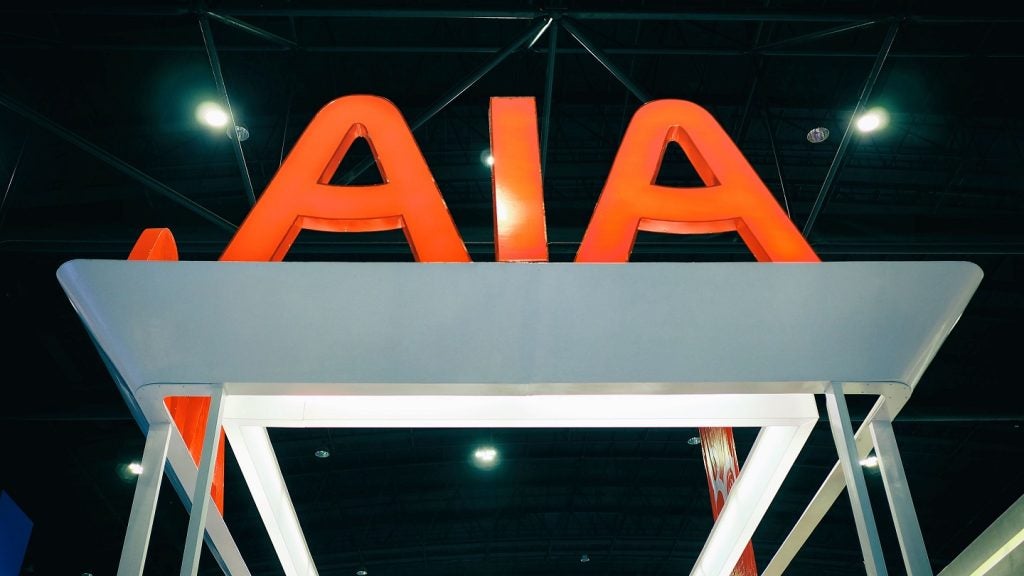Protective Life joins approved TARP
queue…
AIG puts property unit on the selling
block…
BNP Paribas extends its reach in Taiwan…
Two more UK property fund doors slam
shut…
Chinese insurers paint a gloomy picture…
How well do you really know your competitors?
Access the most comprehensive Company Profiles on the market, powered by GlobalData. Save hours of research. Gain competitive edge.

Thank you!
Your download email will arrive shortly
Not ready to buy yet? Download a free sample
We are confident about the unique quality of our Company Profiles. However, we want you to make the most beneficial decision for your business, so we offer a free sample that you can download by submitting the below form
By GlobalDataINDUSTRY TRENDS
Protective Life joins approved TARP queue
Protective Life Corporation (PLC) has become the third US life
insurer to gain approval to change its regulatory status to that of
bank holding company, a prerequisite to become eligible to
participate in the US Treasury’s $700 billion Troubled Assets
Relief Program (TARP).
Approval was granted by the Federal Reserve Board (Fed).
PLC is seeking assistance under the TARP’s Capital Purchase
Program for which $250 billion has been made available for the
Treasury to purchase senior preferred shares of US-controlled banks
and savings associations (thrifts).
The shares will pay an annual dividend rate of 5 percent for the
first five years and 9 percent thereafter.
Facilitating PLC’s change to bank holding company status was its
acquisition of Florida-based Bonifay Holding Company and its
subsidiary bank, The Bank of Bonifay.
Non-banking giant Bonifay has total assets of $220 million and
is Florida’s 143rd largest depository institution, according to the
Fed. Protective has total assets of some $41 billion.
PLC joins The Hartford Financial Services Group and Lincoln
National which have received approval from the Office of Thrift
Supervision to change their regulatory status from that of insurer
to thrift holding company. The Hartford acquired Florida-based
thrift Federal Trust Bank while Lincoln National acquired
Indiana-based thrift Newton County Loan & Savings.
COMPANIES
AIG puts property unit on the selling block
AIG Global Real Estate (GRE) the property arm of US insurer
American International Group (AIG) has placed its fund management
unit on the selling block. For sale is a business with total assets
under management of $12.4 billion at the end of September 2008.
New York headquartered, the unit has operations in Europe,
Japan, Latin America and Asia and committed equity capital funded
or to be funded by GRE as sponsor or co-investor.
Committed equity capital totaled $5.2 billion at the end of
September 2008.
Progressing with a mammoth sale of assets to fund repayment of
an $85 billion US federal government loan, AIG has already sold two
significant units.
First to go was The Hartford Steam Boiler Inspection and
Insurance Company, a provider of equipment breakdown and engineered
lines insurance and reinsurance, sold in late-December for $742 to
German insurer Munich Re.
Gone too is AIG Canada Life (AIGC), sold to Canadian financial
services company, BMO Financial Group (BMO) for C$375 million ($308
million) in mid-January.
Offering products such as life and critical illness insurance
and immediate annuities, AIGC has 400,000 customers and markets
through 5,000 advisors. For BMO, which has over 7 million customers
in Canada, acquisition of AIGC marks its first move into life
insurance.
BANCASSURANCE
BNP Paribas extends its reach in Taiwan
Taiwan’s highly competitive life insurance market will soon have
another player jostling for position following an agreement between
BNP Paribas Assurance (BPA) and Taiwan Cooperative Bank (TCB) to
form a joint venture (JV) life insurance company, BNP Paribas
Assurance TCB Life Insurance Company.
BPA, a unit of French bank BNP Paribas, is France’s third
largest life insurer.
Signaling that the partners have aggressive ambitions for the
new venture, BPA’s head of international operations Jean-Bertrand
Laroche said: “In Taiwan, our goal is to leap into the top three
bancassurance companies.”
TCB, which will have a 51 percent stake in the JV, is Taiwan’s
largest commercial bank and operates a network of 295 domestic
branches. TCB’s largest shareholder is Taiwan’s Ministry of Finance
which holds a 40 percent stake.
BPA entered the Taiwanese market 10 years ago and has two
existing units: Taiwan’s eighth largest life insurer Cardif
Assurance Vie (CAV) and general insurer Cardif-Assurances Risques
Divers.
In 2007, CAV reported gross written premiums of NT$28.3 billion
($838 million) and, according to BPA had the second-largest number
of channels for investment-linked insurance products in
bancassurance. BPA and TCB have had a bancassurance arrangement in
place since 2006.
INVESTMENTS
Hedge funds fail their big bear market test
Investors, many insurers among them, who looked to hedge funds
as an alternative asset class that delivers reliable absolute
returns were sorely disappointed in 2008.
Based on investment research firm Morningstar’s 1000 Hedge Fund
Index, a global, broadly representative benchmark for hedge fund
performance, fell 10.3 percent in the last quarter of 2008 taking
the total decline in 2008 to 22.2 percent, wiping out the two
previous years’ gains.
“In 2008, hedge fund managers generally failed to deliver,” said
Morningstar analyst Nadia Papagiannis.
“The average hedge fund may have lost less than the stock
market, thanks in part to large cash allocations, but this level of
performance was not why investors agreed to pay 2 percent
management fees and 20 percent performance fees.”
Emerging markets was the worst performing hedge fund class in
2008 with Morningstar’s Emerging Market Equity Hedge Fund Index
falling 45.6 percent, not far short of the MSCI Emerging Markets
Index almost 55 percent fall.
According to Morningstar, hedge fund inflows peaked in June 2007
and bottomed in October 2008, when more than $21 billion left the
industry. In November 2008, another $19.4 billion flowed out of
hedge funds taking outflows in the 11 months to November to $44
billion.
ISLAMIC FINANCIAL MARKET
Takaful entry
Already a significant force in global Islamic financial markets,
Dubai-based Dubai Group has announced its entry into the Takaful
(Shariah law-compliant) life and general insurance markets.
Spearheading Dubai Group’s move is its Noor Investment Group (NIG)
unit.
The new Takaful insurance operations headquartered in Dubai will
initially focus on the emirates of Abu Dhabi, Dubai and Sharjah.
The aim is to expand in the Middle East and North African
region.
Entry into the Takaful market is in line with the Dubai Group’s
strategy to capitalise on what it termed the Gulf region’s
“flourishing Islamic insurance sector.” Dubai Group noted that
according to independent industry research, the regions insurance
industry is anticipated to grow at a rate between 20 percent and 25
percent annually.
Among Dubai Group’s extensive interest in the Islamic financial
sector are wholly-owned units Dubai Bank and Noor Islamic Bank, a
40 percent stake in Bank Islam, Malaysia’s oldest and largest
Islamic bank, and an 18.8 percent stake in Bank Islami Pakistan,
the first Pakistani bank to receive an Islamic banking licence.
According to Dubai Group, through its subsidiaries and
affiliates it has business interests in 26 countries employing
13,000 individuals, over 4 million customers and 748 branches.
DEVELOPING MARKETS
Indian newcomer on brand-building drive
Launched in August 2008 Indian life insurer Aegon Religare Life
Insurance (ARLI) has set out to establish its brand with a series
of marketing campaigns aimed at educating Indian consumers on the
importance of insurance.
In its multi-media launch campaign which featured Indian acting
icon Irrfan Khan, ARLI focused on the dangers of under-insurance,
garnering for its efforts some 45,000 enquiries.
In ARLI’s follow-up campaign, also featuring Khan, focus is on
retirement, backed by its launch of a number of relevant
products.
“The opportunity for retirement solutions is huge,” said ARLI
chief marketing officer Yateesh Srivastava.
He added that though a shift in Indian culture is resulting in
people wanting to become less dependant on their when retired only
13 percent of Indian workers are covered by some kind of retirement
or pension plan.
ACLI is a joint venture between Dutch insurer Aegon, (26 percent
stake), Indian financial services company Religare (44 percent) and
Indian media company Bennett & Coleman (40 percent).
According to India’s Insurance and Regulatory Authority ACLI had
recorded total premium income of INR84.6 million ($1.73 million) as
at 30 November 2008.
INDUSTRY TRENDS
Americans turn to life insurance for
security
With their investment portfolio values hammered by slumping
equity and property values Americans are increasingly turning to
life insurance as a safe haven. This is the experience of the Paul
Goebel Group (PGG), a 75-year old Michigan-based independent life
and general insurance agency.
PGG has experienced what it terms a “spike” in life insurance
inquiries from clients who had previously relied on their
investment portfolios to maintain their family’s standard of living
should an untimely death occur. These clients are now reassessing
the adequacy of their life insurance cover to ensure their family’s
standard of living continues.
Among PGG’s clients are some 50,000 Michigan professionals,
including attorneys, accountants and engineers.
“While people have not overtly mentioned their plummeting
portfolio values as the reason for reviewing their life insurance,
we are nonetheless experiencing an increase in requests for such an
analysis, particularly from existing clients,” said PGG
vice-president Jeff Elble.
“Given the current state of the economy, people are looking at
their life insurance as a way to ensure that their family and
investments are financially secure should the breadwinner or
working spouse die,” Elble added.
LEGAL
MassMutual caught in Madoff crossfire
US life insurer MassMutual has found itself one of six
respondents – including four of its affiliates – in a class action
lawsuit triggered by the Bernard Madoff Investment Securities
(BMIS) debacle in which investors sustained losses upwards of $50
billion.
In the lawsuit, supported by advocacy group the Shareholders
Foundation, aggrieved investors are seeking damages of $3.1
billion, an amount claimed to have been lost on investments placed
by hedge funds manager Rye Investment Funds with BMIS.
Rye is a unit of Tremont Group Holdings (Tremont) which is in
turn owned by OppenheimerFunds of which MassMutual is the majority
shareholder.
In addition to MassMutual and its affiliates, Tremont’s auditors
KPMG are also named in the lawsuit.
In a statement the Shareholders Foundation said that it is
alleged that Tremont turned over virtually all capital invested in
its Rye Funds ($3.1 billion), to BMIS.
“While relinquishing management to Madoff, Tremont continued to
receive management fees from clients and the company provided
account statements and other documentation that made it appear as
though Tremont Group Holdings had active oversight of clients’
capital, so the lawsuit,” notes the advocacy body in its
statement.
INVESTMENTS
Two more UK property fund doors slam shut
Caught between a clamour by investors to redeem their
investments and an illiquid property market, Norwich Union (NU) and
Standard Life have become the latest UK insurers to impose
redemption restrictions from their life and pensions unit-linked
commercial property funds.
In both NU’s and Standard life’s funds, execution of redemption
requests will be delayed for six months after receipt. Exceptions
include policies with a contractual redemption date and death or
permanent disability claims.
NU’s closure involves one fund with assets of about £2.9 billion
($4.3 billion) and some 225,000 investors. Standard Life is closing
six funds with total assets of about £2.7 billion and some 210,000
investors.
Commenting NU’s marketing director David Barral said the NU
fund’s closure would prevent property sales at below market
values.
“Despite the current short-term difficulties, we are confident
of the long-term prospects for commercial property,” Barral
added.
Less reassuring is a prediction made by the Royal Institution of
Chartered Surveyors in December 2008 that UK commercial property
values, already down 25 percent, will fall by “at least” 16 percent
in 2009 and 10 percent in 2010.
NU’s and Standard Life’s funds’ closures follow similar moves by
Friends Provident, Axa, Scottish Widows and Scottish Equitable,
some of which imposed closures in January 2008.
COMPANIES
Chinese insurers paint a gloomy picture
Plummeting equity values in China have taken a heavy toll
indicate profit warnings from two of the country’s three largest
life insurers.
Based on the benchmark Shanghai Composite Index, equity values
in China fell by 66 percent in 2008.
The first profit warning came from China’s largest life insurer
China Life which anticipates that its net profit for 2008 will be
more than 50 percent below the record CNY38.88 billion ($5.69
billion) recorded in 2007 when profit surged by 95 percent.
China Life’s anticipated full year profit fall represents a
worsening of performance since the first half of 2008 when net
profit fell 32 percent compared with the first half of 2007 to
CNY15.838 billion.
A 50 percent fall for the full-year indicates second half net
profit of about CNY3.6 billion, a fraction of the CNY22 billion
recorded in the second half of 2007.
Bad new has also come from China’s third largest life insurer
China Pacific Insurance (CPI) which warns that its 2008 net profit
will be about 80 percent down on the CNY6.89 billion reported for
2007.
Given that CPI reported a net profit of CNY5.51 billion in the
first half of 2008 this indicates a second half loss of about CNY4
billion.







